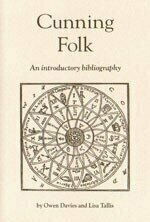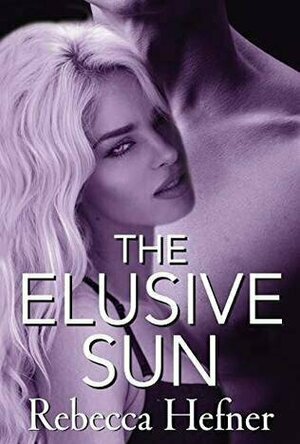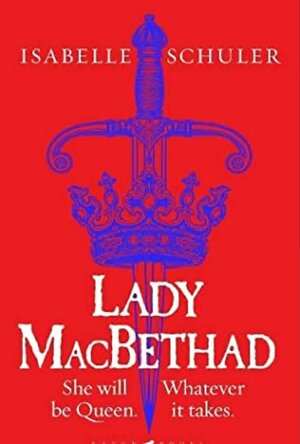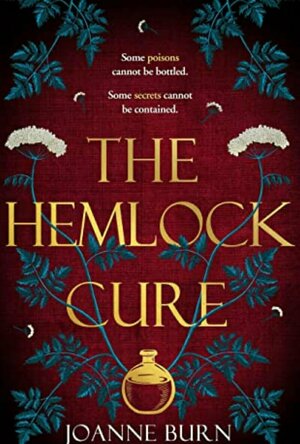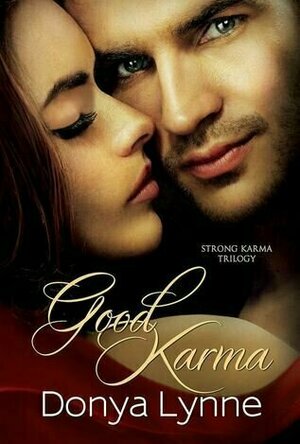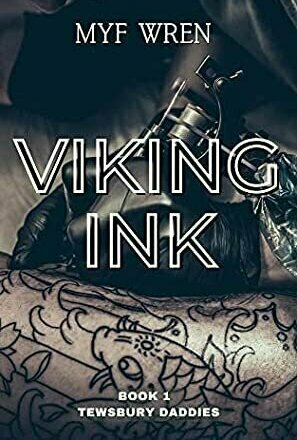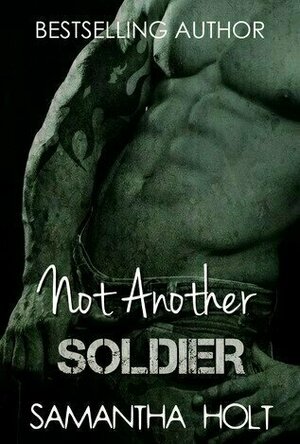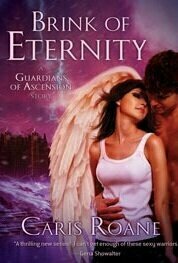Search
Search results
ClareR (5879 KP) rated China Room in Books
Aug 13, 2021
China Room was a beautifully written, emotional novel set in rural Punjab in 1929 and the 1990’s. The unnamed male protagonist in the 90’s has travelled to stay with family mainly to kick a drug habit before he starts at university back in the UK. His addiction could well have been caused by the racist taunts and violence he has experienced at home in Britain - these things are addressed in the book.
He ends up staying on the abandoned family farm: a ramshackle building that needs a lot of work. One room is locked: the China Room. This is where his grandmother, Mehar, would have lived away from the prying eyes of men, working with the wives of the other two brothers to her husband. None of the women know who their husband is - they never see them in daylight. They cook and clean for them, and then have sex with them when their mother-in-law, Mai, allows. Their main function is to bear sons.
It’s a hard way of life, but the women accept their roles. As a 21st century women, living in the West, I found this very difficult to read. It’s an oppressive, claustrophobic life - even down to the veils that they had to wear when out in public which gave the impression of suffocation. I don’t know whether any of the girls actually looked another human in the face, other than each other and their mother-in-law.
But I found this timeline fascinating, and it was a huge contrast to that of Mehar’s grandson. It’s a compelling read - I read it in one sitting, and was a bit sad when I turned the last page, to leave the world of Mehar in particular.
Many thanks to Harvill Secker and Viking for my copy of this book to read and review.
He ends up staying on the abandoned family farm: a ramshackle building that needs a lot of work. One room is locked: the China Room. This is where his grandmother, Mehar, would have lived away from the prying eyes of men, working with the wives of the other two brothers to her husband. None of the women know who their husband is - they never see them in daylight. They cook and clean for them, and then have sex with them when their mother-in-law, Mai, allows. Their main function is to bear sons.
It’s a hard way of life, but the women accept their roles. As a 21st century women, living in the West, I found this very difficult to read. It’s an oppressive, claustrophobic life - even down to the veils that they had to wear when out in public which gave the impression of suffocation. I don’t know whether any of the girls actually looked another human in the face, other than each other and their mother-in-law.
But I found this timeline fascinating, and it was a huge contrast to that of Mehar’s grandson. It’s a compelling read - I read it in one sitting, and was a bit sad when I turned the last page, to leave the world of Mehar in particular.
Many thanks to Harvill Secker and Viking for my copy of this book to read and review.
Lyndsey Gollogly (2893 KP) rated Cunning Folk in Books
Oct 19, 2021
174 of 250
Book
Cunning Folk
By Adam Nevill
Once read a review will be written via Smashbomb and link posted in comments
A compelling folk horror story of deadly rivalry and the oldest magic from the four times winner of The August Derleth Award for Best Horror Novel.
No home is heaven with hell next door.
Money's tight and their new home is a fixer-upper. Deep in rural South West England, with an ancient wood at the foot of the garden, Tom and his family are miles from anywhere and anyone familiar. His wife, Fiona, was never convinced that buying the money-pit at auction was a good idea. Not least because the previous owner committed suicide. Though no one can explain why.
Within days of crossing the threshold, when hostilities break out with the elderly couple next door, Tom's dreams of future contentment are threatened by an escalating tit-for-tat campaign of petty damage and disruption.
Increasingly isolated and tormented, Tom risks losing his home, everyone dear to him and his mind. Because, surely, only the mad would suspect that the oddballs across the hedgerow command unearthly powers. A malicious magic even older than the eerie wood and the strange barrow therein. A hallowed realm from where, he suspects, his neighbours draw a hideous power.
Brilliant!!!! You certainly don’t know who lives next door and who you’re pissing off with a chainsaw! Just brilliant then again I didn’t expect anything less from Adam his books are just the highlight of the year. He’s taken annoying neighbours to a whole new level. I tried so many times to slow myself down but it just wasn’t happening I needed to keep reading. I know I’m going to have a book depression waiting to see what he comes up with next.
Book
Cunning Folk
By Adam Nevill
Once read a review will be written via Smashbomb and link posted in comments
A compelling folk horror story of deadly rivalry and the oldest magic from the four times winner of The August Derleth Award for Best Horror Novel.
No home is heaven with hell next door.
Money's tight and their new home is a fixer-upper. Deep in rural South West England, with an ancient wood at the foot of the garden, Tom and his family are miles from anywhere and anyone familiar. His wife, Fiona, was never convinced that buying the money-pit at auction was a good idea. Not least because the previous owner committed suicide. Though no one can explain why.
Within days of crossing the threshold, when hostilities break out with the elderly couple next door, Tom's dreams of future contentment are threatened by an escalating tit-for-tat campaign of petty damage and disruption.
Increasingly isolated and tormented, Tom risks losing his home, everyone dear to him and his mind. Because, surely, only the mad would suspect that the oddballs across the hedgerow command unearthly powers. A malicious magic even older than the eerie wood and the strange barrow therein. A hallowed realm from where, he suspects, his neighbours draw a hideous power.
Brilliant!!!! You certainly don’t know who lives next door and who you’re pissing off with a chainsaw! Just brilliant then again I didn’t expect anything less from Adam his books are just the highlight of the year. He’s taken annoying neighbours to a whole new level. I tried so many times to slow myself down but it just wasn’t happening I needed to keep reading. I know I’m going to have a book depression waiting to see what he comes up with next.
Merissa (12894 KP) rated The Elusive Sun (Etherya's Earth #2) in Books
Feb 9, 2022
THE ELUSIVE SUN is the second full-length novel in the Etherya's Earth series. Sathan and Miranda are happy as can be, so now it's turn for Lila and Latimus to work out their issues. And, boy, do they have a few!!!
It is so easy to return to this world as it has been described and built with such detail as to make it incredibly easy to believe in. My heart broke for Lila at the same time as my respect for her and her abilities rose sky-high. She may be polite and well-mannered but don't ever mistake her for being weak-willed. She can hold her own against Latimus, so that tells you something!
As for Latimus, well, he's a jerk. Always has been, always will be... or will he? Is Lila actually going to be able to work her magic on his stubbornness? These two really are a match made in heaven, and I loved reading every single word. There is one other word I need to say - Jack. So adorable and rounds out his little family. What a warrior.
This book is now without losses, and my eyes definitely leaked when Takel was so heroic. I won't say anything else because of spoilers but ALL. THE. FEELS.
A fantastic addition to the series that I have loved - although I will admit to not thinking much of Etherya herself. I look forward to seeing how she manipulates things in the future. Highly recommended by me.
** same worded review will appear elsewhere **
* A copy of this book was provided to me with no requirements for a review. I voluntarily read this book, and the comments here are my honest opinion. *
Merissa
Archaeolibrarian - I Dig Good Books!
It is so easy to return to this world as it has been described and built with such detail as to make it incredibly easy to believe in. My heart broke for Lila at the same time as my respect for her and her abilities rose sky-high. She may be polite and well-mannered but don't ever mistake her for being weak-willed. She can hold her own against Latimus, so that tells you something!
As for Latimus, well, he's a jerk. Always has been, always will be... or will he? Is Lila actually going to be able to work her magic on his stubbornness? These two really are a match made in heaven, and I loved reading every single word. There is one other word I need to say - Jack. So adorable and rounds out his little family. What a warrior.
This book is now without losses, and my eyes definitely leaked when Takel was so heroic. I won't say anything else because of spoilers but ALL. THE. FEELS.
A fantastic addition to the series that I have loved - although I will admit to not thinking much of Etherya herself. I look forward to seeing how she manipulates things in the future. Highly recommended by me.
** same worded review will appear elsewhere **
* A copy of this book was provided to me with no requirements for a review. I voluntarily read this book, and the comments here are my honest opinion. *
Merissa
Archaeolibrarian - I Dig Good Books!
ClareR (5879 KP) rated Lady MacBethad in Books
Apr 4, 2023
I studied Macbeth at school (pre-GCSE), and I don’t think I was told that it was based on a real historical figure - at least I’ve forgotten in the intervening 30-odd years. All I can remember , is that my English teacher at the time, Mr Jones, asked me to read Lady Macbeth’s part, because he thought I suited it! I’m sure I should have been more insulted than I was, but then I always thought that she had the good part…
Lady MacBethad is the story pre-Macbeth and probably closer to the truth. Shakespeare had his reasons for writing his play the way he did (keeping in with the royals and the fee-paying public, perhaps?), but it seems in reality MacBethad had more of a claim to the throne than Duncan.
This novel is of course from Lady MacBethad’s point of view - but she hasn’t got there yet. In this, she’s Gruoch, or as her grandmother says: “Groa, daughter of Boedhe, son of Coinneach, the rightful King of Alba…You will be the greatest of us all”
Gruoch is brought up in a household where her mother remembers her picti and ancient Druid heritage, but her father, Boedhe, follows the new Christian faith. Gruoch is conflicted. But she does know that she wants to be queen, and will stop at nothing to get there.
She’s so young though, and that does come across in some of her attitude, temper tantrums and opinions. She’s certainly undertaking quite some learning curve.
This was such a readable, immersive story, and I found myself backing Gruoch and wanting to actually help her (she would never have listened). I’ve no doubt this will be one of my favourite books this year - and I do wonder if there will be a sequel? I’d read it!
Lady MacBethad is the story pre-Macbeth and probably closer to the truth. Shakespeare had his reasons for writing his play the way he did (keeping in with the royals and the fee-paying public, perhaps?), but it seems in reality MacBethad had more of a claim to the throne than Duncan.
This novel is of course from Lady MacBethad’s point of view - but she hasn’t got there yet. In this, she’s Gruoch, or as her grandmother says: “Groa, daughter of Boedhe, son of Coinneach, the rightful King of Alba…You will be the greatest of us all”
Gruoch is brought up in a household where her mother remembers her picti and ancient Druid heritage, but her father, Boedhe, follows the new Christian faith. Gruoch is conflicted. But she does know that she wants to be queen, and will stop at nothing to get there.
She’s so young though, and that does come across in some of her attitude, temper tantrums and opinions. She’s certainly undertaking quite some learning curve.
This was such a readable, immersive story, and I found myself backing Gruoch and wanting to actually help her (she would never have listened). I’ve no doubt this will be one of my favourite books this year - and I do wonder if there will be a sequel? I’d read it!
ClareR (5879 KP) rated The Hemlock Cure in Books
Apr 6, 2023
The Hemlock Cure was a fascinating insight into the lives of ordinary people during the Black Death (Bubonic Plague) epidemic of 1665-1666. The plague is very much in the background of this story for most of it, though.
The real evil isn’t a disease, it’s being shut in with people who clearly do not have good intentions.
The village of Eyam is well known for the decision to shut itself off from the outside world when its inhabitants started to become ill and die. They understood that the only way to halt the spread of the disease was to isolate themselves - a selfless act.
This novel looks at some of the families and their relationships inside and outside of their family units. The local apothecary and his daughter Mae, are one such family. Mae is desperate to be her fathers apprentice, but this isn’t a time in history where it’s safe for a woman to be working with herbs. So Mae studies with the midwife and a local wise woman (who are both also skating on thin ice, truth be told).
The plague wasn’t a constant in London it appears, and we travel there with one of the main characters. The contrast between the country village and London was quite something to read. I could almost smell the difference off the page!!
I enjoyed the pacing of this book: in Eyam the time crawls, whilst in London everything is all hustle and bustle.
The slow reveal of the terrible secrets in Mae’s family are not so much shocking as terrifying. Wulfric, Mae’s father, is not a well man. It seems to be a race against time for Mae.
I would most definitely recommend this book to historical fiction fans - and if you like a mystery, you may well like this as well.
The real evil isn’t a disease, it’s being shut in with people who clearly do not have good intentions.
The village of Eyam is well known for the decision to shut itself off from the outside world when its inhabitants started to become ill and die. They understood that the only way to halt the spread of the disease was to isolate themselves - a selfless act.
This novel looks at some of the families and their relationships inside and outside of their family units. The local apothecary and his daughter Mae, are one such family. Mae is desperate to be her fathers apprentice, but this isn’t a time in history where it’s safe for a woman to be working with herbs. So Mae studies with the midwife and a local wise woman (who are both also skating on thin ice, truth be told).
The plague wasn’t a constant in London it appears, and we travel there with one of the main characters. The contrast between the country village and London was quite something to read. I could almost smell the difference off the page!!
I enjoyed the pacing of this book: in Eyam the time crawls, whilst in London everything is all hustle and bustle.
The slow reveal of the terrible secrets in Mae’s family are not so much shocking as terrifying. Wulfric, Mae’s father, is not a well man. It seems to be a race against time for Mae.
I would most definitely recommend this book to historical fiction fans - and if you like a mystery, you may well like this as well.
Merissa (12894 KP) rated Good Karma (Strong Karma Trilogy #1) in Books
Apr 7, 2023 (Updated Apr 10, 2023)
I first fell in love with Donya Lynne's characters when I read her All The King's Men series so when I heard she was releasing a contemporary romance novel, I really wanted to read it to see if it could be as good.
Good Karma starts off with a sassy red dress and attitude, even if it is veneer. Mark Strong is attracted to that dress as it calls for his attention but then is swept away by the woman inside it. Karma is playing at being someone else for the evening and can't believe that she has caught the eye of one of the most handsome men there. Full of her own insecurities caused by her past, she thinks she is ready to let it all go but realises that she is not. This story follows Mark and Karma as they serendipitously meet up again, this time as work colleagues for a short-term contract.
This story is beautifully written and the characters have their own issues and pasts to deal with which makes them 'real'. Mark is an alpha male through and through but has also learnt to embrace his sensitive side. Karma is a strong female lead who is the perfect match for Mark but will need his help to deal with her own issues.
A fantastic story that entwined itself around me and yes, tissues were needed at some point but it wasn't because I was crying. Oh no, it's just my eyes were leaking!
If you have read AKM then rest assured that this book still has the Donya Lynne stamp and will sit happily next to each other. Definitely as good but just a different genre.
Recommended to all.
Merissa
Archaeolibrarian - I Dig Good Books!
July 31, 2019
Good Karma starts off with a sassy red dress and attitude, even if it is veneer. Mark Strong is attracted to that dress as it calls for his attention but then is swept away by the woman inside it. Karma is playing at being someone else for the evening and can't believe that she has caught the eye of one of the most handsome men there. Full of her own insecurities caused by her past, she thinks she is ready to let it all go but realises that she is not. This story follows Mark and Karma as they serendipitously meet up again, this time as work colleagues for a short-term contract.
This story is beautifully written and the characters have their own issues and pasts to deal with which makes them 'real'. Mark is an alpha male through and through but has also learnt to embrace his sensitive side. Karma is a strong female lead who is the perfect match for Mark but will need his help to deal with her own issues.
A fantastic story that entwined itself around me and yes, tissues were needed at some point but it wasn't because I was crying. Oh no, it's just my eyes were leaking!
If you have read AKM then rest assured that this book still has the Donya Lynne stamp and will sit happily next to each other. Definitely as good but just a different genre.
Recommended to all.
Merissa
Archaeolibrarian - I Dig Good Books!
July 31, 2019
Merissa (12894 KP) rated Viking Ink (Tewsbury Daddies #1) in Books
Apr 7, 2023 (Updated Apr 10, 2023)
VIKING INK is the first book in the Tewsbury Daddies series and is also this author's debut novel, which I find incredibly hard to believe! I loved this story and can't wait to dive back in!
Rhys and Simon fall into a relationship quickly - more quickly than Simon wanted but he is unable to resist Rhys' puppy-dog eyes. There is plenty of talk about their kink and how they want it to progress. Ree does regress quite a way, so if you like your Littles to be more Middles, then this is not the book for you. It also covers some difficult subjects so be aware of that. I thought it was all delicately handled and extremely well-written. The two sides of Rhys did come together so brilliantly, it was easy to see how Simon was bowled over.
Apart from the obvious angst, the relationship itself is low-angst, very sweet and tender, with some steamy moments that worked perfectly. I was left with questions about Liam but nothing was really necessary. I was just being greedy! I am hoping to see more of Rhys and Simon as the series progresses, especially so I can find out how the investigation is coming along. They really need to pay for their crimes!!
Obviously, Mitch and Cal deserve their story, but I also want Doc's as well as Officer Grumpy's. I am really looking forward to seeing what this author comes up with next. HIGHLY recommended by me.
** same worded review will appear elsewhere **
* A copy of this book was provided to me with no requirements for a review. I voluntarily read this book; the comments here are my honest opinion. *
Merissa
Archaeolibrarian - I Dig Good Books!
April 7, 2023
Rhys and Simon fall into a relationship quickly - more quickly than Simon wanted but he is unable to resist Rhys' puppy-dog eyes. There is plenty of talk about their kink and how they want it to progress. Ree does regress quite a way, so if you like your Littles to be more Middles, then this is not the book for you. It also covers some difficult subjects so be aware of that. I thought it was all delicately handled and extremely well-written. The two sides of Rhys did come together so brilliantly, it was easy to see how Simon was bowled over.
Apart from the obvious angst, the relationship itself is low-angst, very sweet and tender, with some steamy moments that worked perfectly. I was left with questions about Liam but nothing was really necessary. I was just being greedy! I am hoping to see more of Rhys and Simon as the series progresses, especially so I can find out how the investigation is coming along. They really need to pay for their crimes!!
Obviously, Mitch and Cal deserve their story, but I also want Doc's as well as Officer Grumpy's. I am really looking forward to seeing what this author comes up with next. HIGHLY recommended by me.
** same worded review will appear elsewhere **
* A copy of this book was provided to me with no requirements for a review. I voluntarily read this book; the comments here are my honest opinion. *
Merissa
Archaeolibrarian - I Dig Good Books!
April 7, 2023
Merissa (12894 KP) rated Not Another Soldier in Books
Apr 10, 2023
This is the story of Sienna and Nick. Nick is her dead husband's best friend although they haven't actually been that close over the past few years. Nick wants Sienna, and Sienna wants Nick, but she doesn't know if she can 'just' be a wife any more, especially an army wife. Nick however knows what he wants and isn't prepared to back down from a challenge.
On the whole, this was an enjoyable story that kept me reading. It's not one of the best that I've read but it definitely wasn't one of the worst. One of the things for me is that Sienna is quite a whingy character. Now I'm not saying she doesn't have the right, she really did have a scumbag of a husband but you see, my thing is, she is the one that made the choice to stay with him for all that time. Yes, I know she was leaving him when he died and it took his hands around his throat for her to do that but still... she knew he was cheating, it was a loveless marriage, yada yada yada and she STILL stayed. Nick deserves a medal, not for being a marine, but for keeping his mouth shut in such a situation.
Not Another Soldier is a relatively well-written and fast-paced novel. The characters are all well-rounded whether you like them or not. For me, it was a bit like a Chinese meal - satisfying at the time but hungry half an hour later.
* A copy of this book was provided to me with no requirements for a review. I voluntarily read this book; the comments here are my honest opinion. *
Merissa
Archaeolibrarian - I Dig Good Books!
September 2, 2016
On the whole, this was an enjoyable story that kept me reading. It's not one of the best that I've read but it definitely wasn't one of the worst. One of the things for me is that Sienna is quite a whingy character. Now I'm not saying she doesn't have the right, she really did have a scumbag of a husband but you see, my thing is, she is the one that made the choice to stay with him for all that time. Yes, I know she was leaving him when he died and it took his hands around his throat for her to do that but still... she knew he was cheating, it was a loveless marriage, yada yada yada and she STILL stayed. Nick deserves a medal, not for being a marine, but for keeping his mouth shut in such a situation.
Not Another Soldier is a relatively well-written and fast-paced novel. The characters are all well-rounded whether you like them or not. For me, it was a bit like a Chinese meal - satisfying at the time but hungry half an hour later.
* A copy of this book was provided to me with no requirements for a review. I voluntarily read this book; the comments here are my honest opinion. *
Merissa
Archaeolibrarian - I Dig Good Books!
September 2, 2016
Merissa (12894 KP) rated Brink of Eternity (Guardians of Ascension #2.5) in Books
Apr 14, 2023
I managed to confuse myself a bit with this book because I have recently read Awakening (Rapture's Edge #1) and managed to completely miss the following Reader's Advisory - "Awakening is a paranormal romance novel, a vampire romance with a fantasy edge, of the Rapture’s Edge Series. The series is preceded by two related books: BRINK OF ETERNITY and THE DARKENING. RAPTURE’S EDGE is part of the Guardians of Ascension Saga!"
So starting this book, I immediately travelled back in time to before Rachel and Duncan got together, as Elise and Gideon try to figure out just what it is that's going on with them, dealing with death vampires and going through Elise's ascension.
This book is full of intensity and action, both between the sheets and out of it. Elise is a feisty character who knows what she wants and how to get it. The only difficulty she has is figuring out if someone can be by her side or if she will continue to walk alone. Elise and Gideon have already had a relationship which ended by mutual consent, but they both still feel the attraction. Secrets and personal fears though have a way of getting involved and in the way as they try to figure out what is going on between them.
The characters in this book are all wonderfully written and it was actually really good to read about them in a different context, even if it was from an earlier time than what I had already read. Definitely recommended.
* A copy of this book was provided to me with no requirements for a review. I voluntarily read this book; the comments here are my honest opinion. *
Merissa
Archaeolibrarian - I Dig Good Books!
Jul 14, 2015
So starting this book, I immediately travelled back in time to before Rachel and Duncan got together, as Elise and Gideon try to figure out just what it is that's going on with them, dealing with death vampires and going through Elise's ascension.
This book is full of intensity and action, both between the sheets and out of it. Elise is a feisty character who knows what she wants and how to get it. The only difficulty she has is figuring out if someone can be by her side or if she will continue to walk alone. Elise and Gideon have already had a relationship which ended by mutual consent, but they both still feel the attraction. Secrets and personal fears though have a way of getting involved and in the way as they try to figure out what is going on between them.
The characters in this book are all wonderfully written and it was actually really good to read about them in a different context, even if it was from an earlier time than what I had already read. Definitely recommended.
* A copy of this book was provided to me with no requirements for a review. I voluntarily read this book; the comments here are my honest opinion. *
Merissa
Archaeolibrarian - I Dig Good Books!
Jul 14, 2015
Lyndsey Gollogly (2893 KP) rated Dirty Game (Annie Carter #1) in Books
Oct 27, 2021
178 of 250
Book
Dirty Game (Annie Carter book 1)
By Jessie Keane
Once read a review will be written via Smashbomb and link posted in comments
Adultery, murder and dangerous love collide in Jessie Keane's gritty debut novel. For longer than she cares to remember Annie Bailey has lived in the shadow of her older sister Ruthie. Now Ruthie has her hands on Max Carter, the much feared head of the Carter family and a top class villain. Seducing Max wasn't a problem, but the guilt, shame and anger of rejection afterwards was. Thrown onto the streets Annie finds herself living with Celia, a wayward aunt with a shocking secret. As the months pass Annie's resourceful nature sees her mature and carve out a life for herself, albeit not legal. But if you play with fire, you can expect to get burned and her lavish new lifestyle and connections may be about to come crashing down around her. Annie has unwittingly placed herself between two rival gangs and upset too many people, and these kind of people don't forget. But as everyone knows, Annie Bailey is no ordinary woman.
Growing up I was always fascinated with London gangs especially the Krays so this was right up my street. Jessie writes brilliantly about a hard ,fast paced and violent lifestyle. I love Annie’s journey in this book and can’t wait to read more. It’s brilliantly written and so similar to Martina Cole (I’m not sure who came first I just found Martina first!) the whole work surrounding these characters is violent and intricate, what I love in this one is the slight twist at the end! Highly recommend to those who love this style of writing.
Book
Dirty Game (Annie Carter book 1)
By Jessie Keane
Once read a review will be written via Smashbomb and link posted in comments
Adultery, murder and dangerous love collide in Jessie Keane's gritty debut novel. For longer than she cares to remember Annie Bailey has lived in the shadow of her older sister Ruthie. Now Ruthie has her hands on Max Carter, the much feared head of the Carter family and a top class villain. Seducing Max wasn't a problem, but the guilt, shame and anger of rejection afterwards was. Thrown onto the streets Annie finds herself living with Celia, a wayward aunt with a shocking secret. As the months pass Annie's resourceful nature sees her mature and carve out a life for herself, albeit not legal. But if you play with fire, you can expect to get burned and her lavish new lifestyle and connections may be about to come crashing down around her. Annie has unwittingly placed herself between two rival gangs and upset too many people, and these kind of people don't forget. But as everyone knows, Annie Bailey is no ordinary woman.
Growing up I was always fascinated with London gangs especially the Krays so this was right up my street. Jessie writes brilliantly about a hard ,fast paced and violent lifestyle. I love Annie’s journey in this book and can’t wait to read more. It’s brilliantly written and so similar to Martina Cole (I’m not sure who came first I just found Martina first!) the whole work surrounding these characters is violent and intricate, what I love in this one is the slight twist at the end! Highly recommend to those who love this style of writing.

